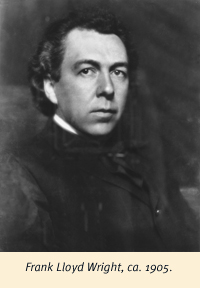The congregation experienced some difficult years at first, for several reasons. First, many of the church's most important backers had suffered materially as a result of the Chicago Fire, and few of the members could be described as being among the really wealthy families in town. Then, too, as a loosely knit association of less- than-traditional Unitarians and a group of Universalists, even less committed to a highly developed structure, the congregation had neither the type of institutional support provided by a normal institutional affiliation nor the status offered by identification with one of the mainstream churches. Another problem related to the lack of a clear denominational focus was highlighted when the first minister left under duress, in a little over one year, and was replaced by one ordained in the Unitarian Church. There were several more changes in religious leadership in the next decade, underscoring the lack of identity and purpose of the congregation. To provide some structure and a minimal identification with the larger block within the congregation, the Universalists, a Church within Unity Church was organized in 1882. The membership in that more structured body was recognized by the Universalist denomination, but the church itself (hereafter known as the "parish"), succeeded in remaining free of direct institutional affiliation without alienating the Unitarians in the group and managed to be open to all interested in liberal religion. That solution set the pattern for the future of the congregation, and though there was a merger of the Unitarians and the Universalists at a national level, almost one hundred years later, Unity Temple is still known as one of the most liberal and least dedicated to dogma among religious organizations. The selection of Augusta Chapin (1836-1905), an energetic, multi-talented and highly organized Universalist woman, as pastor in 1886, helped redirect the energies of the congregation, and a period of growth ensued. This remarkable person had been preaching since 1859, had been ordained in the Universalist ministry in 1863 (only the second woman to receive ordination), and had held pulpits in Michigan, Iowa, Pennsylvania, and two others in Illinois before accepting the position in Oak Park. She was also the first woman in the United States to be awarded the degree of doctor of divinity. Later in life, again breaking new ground for women in the ministry and education, she was to serve as an extension lecturer for both Lombard College and the University of Chicago, and to have a leadership role in the Women's Committee of the Columbian Exposition. In addition, Chapin was active in the Temperance movement and other reform organizations, and was an active participant in the affairs of the Universalist organization. 
Among those who joined the church during the six years of her pastorate, there were two without whom this story could not be told. The first was Edwin H. Ehrman who joined in 1889 and was later to play a critical role in the construction of Unity Temple, and who remained an active member of the congregation for the next half-century. The other was an old friend of Reverend Chapin, Anna Jones Wright, the mother of Frank Lloyd Wright, who, together with her son and younger daughter, briefly boarded with Chapin and who was to begin her spotty affiliation with Unity Church in 1890. Anna Wright was the sister of Jenkin Lloyd Jones, the minister of All Soul's Unitarian Church in Chicago (1882-1905), a leader of the more radical branch of Unitarianism in his position of director of the Western Unitarian Conference (1875-1884) and an associate of the Unity Church minister in a variety of liberal causes. Anna's ex-husband, William Cary Wright (1825-1904), had started his ministerial career as a Baptist, but had later preached as a Unitarian minister within the same conference as his brother-in-law Jenkin. Thus, the relations between Reverend Chapin and her boarders were built on both strong religious and familial ties. . . . • • •
|

Top Five Books, LLC,
is a Chicago-based independent publisher dedicated to publishing only the finest fiction, timeless classics, and select nonfiction.
is a Chicago-based independent publisher dedicated to publishing only the finest fiction, timeless classics, and select nonfiction.
© Top Five Books, LLC. All rights reserved.